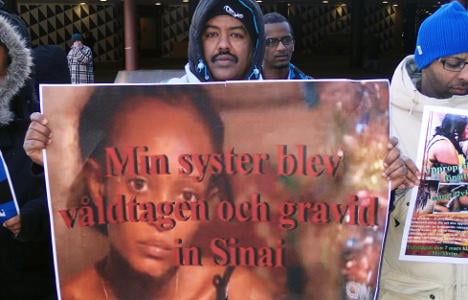In December, a report presented to Swedish EU Commissioner for Home Affairs Cecilia Malmström said the ransom system had generated an estimated $620million in the past four years. Eritreans were at particular risk, as some 5,000 flee the country every month, the report noted.
"Treated as commodities, sold and resold – these people are trafficked. The vocabulary of ‘warehouses’ and ‘auctions’ and the negotiation of the ‘price’ of the hostages is reminiscent of the age of slavery," the December report authors noted. "In the Sinai, hostages are extorted for phenomenally high ransoms, which are collected from their families and communities at home and in the diaspora."
On Tuesday, the new Europol report noted that Eritreans living in Sweden in particular but also Switzerland and Germany had been targeted.
"Europol is ready for coordinated action with Interpol to deal with the problem in Europe and the Sinai region,” Europol director Rob Wainwright commented.
The Europol press release went into detail of one case that targeted a relative in Sweden, who was asked to pay $33,000 to prevent the murder of the family member held in Sinai. The blackmailers also said the victim's organs would be sold off.
"The suspects attempted to arrange face-to-face meetings in Sweden for the handover of ransom payments," the statement explained. "Subsequently, the relative was sent regular threat messages via SMS and presented with a shortened deadline. In this case, the victim was killed and the transaction was not completed."
As well as telling national police forces to be aware that this type of cross-border extortion was taking place on their beat, Wainwright said the main job was to nip the extortionists where it hurts – the money.
"In response to any increase in cases reported to national competent authorities in Europe, the centralized analysis of this data at Europol would enable the detection of cross-border links between different cash handlers," Wainwright said.
The Europol report also suggested that more cooperation between police forces, public information campaigns, and intelligence work directed at the cash handlers were all measures needed to tackle the criminal system.
Public information campaigns, Europol said, could help Eritreans living in Europe pluck up the courage to approach their local police.


 Please whitelist us to continue reading.
Please whitelist us to continue reading.
Member comments